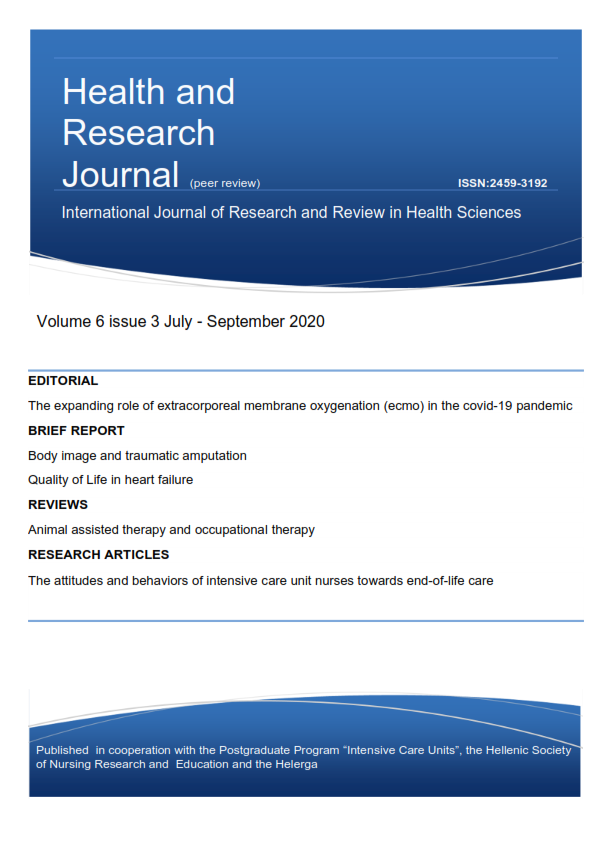The attιtudes and behavιors of intensιve care unιt nurses towards end-of-lιfe care

Abstract
Introduction: The end-of-life period is a process in which anxiety of death is experienced intensely and there are positive and negative experiences for the nurse and the patient. Nurses' attitudes and behaviors about death affect the quality of care in the end-of-life process.
Aim: The aim of the present study was to determine the attitudes and behaviors of intensive care unit nurses towards end-of-life care.
Material and Method: The studied sample consisted from 216 nurses working in the intensive care units of three university hospitals. In the present study, the Nurse Identification Form and The Attitude and Behaviors of The Intensive Care Unit Nurses Towards The End-of-Life Care Scale were used as the data collection forms.
Results: Statistically significant differences were found between attitudes subscale, behavior subscale, scale total mean scores and some variables such as the education level, the intensive care unit classification, knowledge for end-of-life care, the frequency of death in their unit. As a result of the correlation analysis, there were statistically significant positive correlations between attitudes subscale, behavior subscale, scale total mean scores, and some variables such as total working years as a nurse, total working years in the intensive care unit, age.
Conclusions: The level of education, the intensive care unit classification, knowledgeabout end-of-life care, the frequency of death in their unit, age, total working years as a nurse, and total working year in the intensive care unit have relationship with the attitudes and behaviors of intensive care unit nurses towards end-of-life care.
Article Details
- How to Cite
-
Hançerlioğlu, S., & Konakçı, G. (2020). The attιtudes and behavιors of intensιve care unιt nurses towards end-of-lιfe care. Health & Research Journal, 6(3), 93–100. https://doi.org/10.12681/healthresj.25302
- Section
- Original Articles
Copyright notice:
Authors retain copyright of their work and grant the Health and Research Journal the right of first publication.
License:
Articles are published under the Creative Commons Attribution 4.0 International License (CC BY 4.0). This license permits use, sharing, adaptation, distribution, and reproduction in any medium or format, including for commercial purposes, provided that appropriate credit is given to the author(s) and the original publication in this journal, a link to the license is provided, and any changes are indicated.
Attribution requirement:
Any reuse must include the article citation and DOI (where available), and indicate if changes were made.


